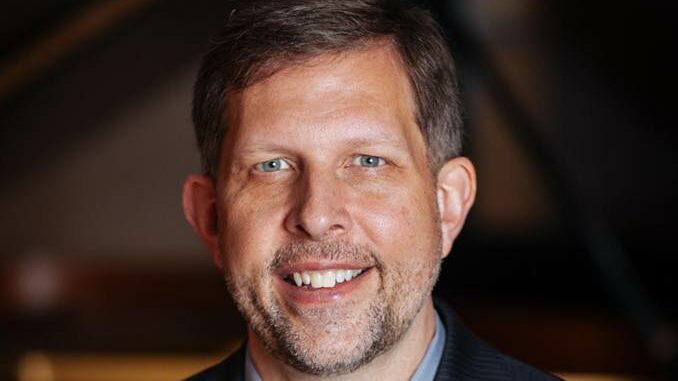Accomplished Pianist Shares Insights on the Future of Music Education in the Age of AI
In partnership with APG
By Nick Kasmik

How individuals learn and teach music is on the brink of a shift with the increasing influence of artificial intelligence (AI). As technology penetrates the personal and expressive realm of music, a question persists: How can AI’s potential be utilized without sacrificing the soul of musical expression? Kenneth Thompson, a world-renowned pianist, educator, and founder of the Musical Arts Center of San Antonio, Inc. (MACSA), offers his insights on how teachers and students can adapt.
Thompson is a visionary in music education. After graduating from a prestigious music school, he has taught and mentored young musicians for over four decades, with his protégés earning spots at elite institutions. In 1999, he founded MACSA, which has grown into a thriving music school. Now, he’s channeling his wealth of experience into a forthcoming book on teaching, offering a deep dive into the art and science of music education.

The Current Role of AI in Music Education
Keenly observing the landscape, Thompson acknowledges the growing presence of AI in music education. AI-powered platforms like Yousician, Flowkey, and Simply Piano offer learners real-time feedback. Meanwhile, composition tools such as AIVA and Amper Music can assist in generating musical ideas. These technologies have made learning more accessible.
Still, Thompson believes AI’s integration into music education has been slower than in other fields. Many educators remain skeptical and are concerned that AI lacks the emotional depth, intuition, and human connection needed for true artistic development. Thompson recognizes this hesitation but argues that resisting AI entirely isn’t the answer. “We should find ways to incorporate AI into our teaching while maintaining the core principles of musical artistry,” he stresses.
AI as a Tool, Not a Replacement
Thompson emphasizes that AI should be viewed as a tool to enhance the learning experience. He points to handling repetitive tasks (e.g., identifying mistakes, note reading practice, and generating practice routines) as one of the technology’s greatest strengths, freeing teachers to focus on the deeper, more expressive aspects of music. “AI could free up time for more soul-touching, creative, and spiritual work,” he explains. “But we must ensure that it enhances creativity rather than dulling it.”
Calling for music teachers to evolve with the times, he adds: “There’s nothing worse than an educator who has stopped learning. Our students can recognize when we become stagnant. AI will continue to develop, and it’s our responsibility to find ways to integrate it into our methods instead of resisting it.”
Lessons from History: A Cautious Optimism
Concerns about AI’s impact on music education mirror past anxieties about technology in creative fields. Thompson recalls how digital tools disrupted industries such as graphic design in the 1970s and 80s. Many artists feared that computers would replace human creativity. Yet, those who adapted found that technology expanded their capabilities.
The same fears arose when YouTube has served as a medium for accessible online music lessons. Thompson remembers teachers worrying that free instructional videos would lessen the need for private lessons. He notes that this platform has become a valuable teaching aid that has allowed students to reinforce their learning outside the classroom. Thompson believes AI will follow a similar trajectory, and those who embrace it as a tool will find ways to utilize it to their advantage.
On AI’s Limitations
Although Thompson acknowledges AI’s advantages, he’s also clear about its limitations. AI lacks the intuition, emotional intelligence, and mentorship qualities that human teachers provide. It can make learning more convenient. However, if not used correctly, it risks removing the struggle and perseverance necessary for true mastery. Thompson warns that AI-driven learning could lead to a generation of musicians who are technically proficient but lack depth, artistry, and resilience.
Indeed, AI may become more sophisticated but it will never replace the value of a real teacher. “Humans have an innate ability to recognize authenticity,” he says. “We know when something lacks depth, when it’s not real.” Students need real feedback, personal encouragement, and the challenge that only a human teacher can provide.

Kenneth Thompson
Embracing Change While Holding Onto Humanity
Teachers and students must find a balance between technological innovation and artistic integrity as AI continues to reshape the landscape of music education. Kenneth Thompson states this moment of change is more about self-reflection than technology. “When you feel fear, look within yourself,” he advises. “Ask: What can I do to support my own growth? What weaknesses does this fear expose, and how can I turn them into strengths?” He underlines that the future of music education will be defined not by the capabilities of machines but by those who choose to adapt and innovate.
